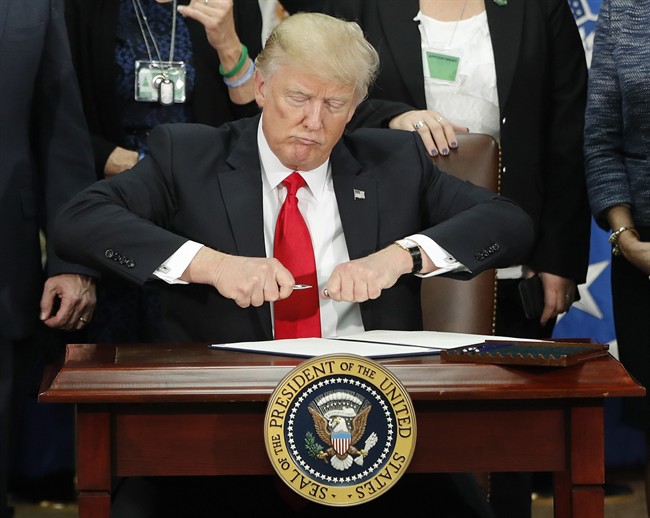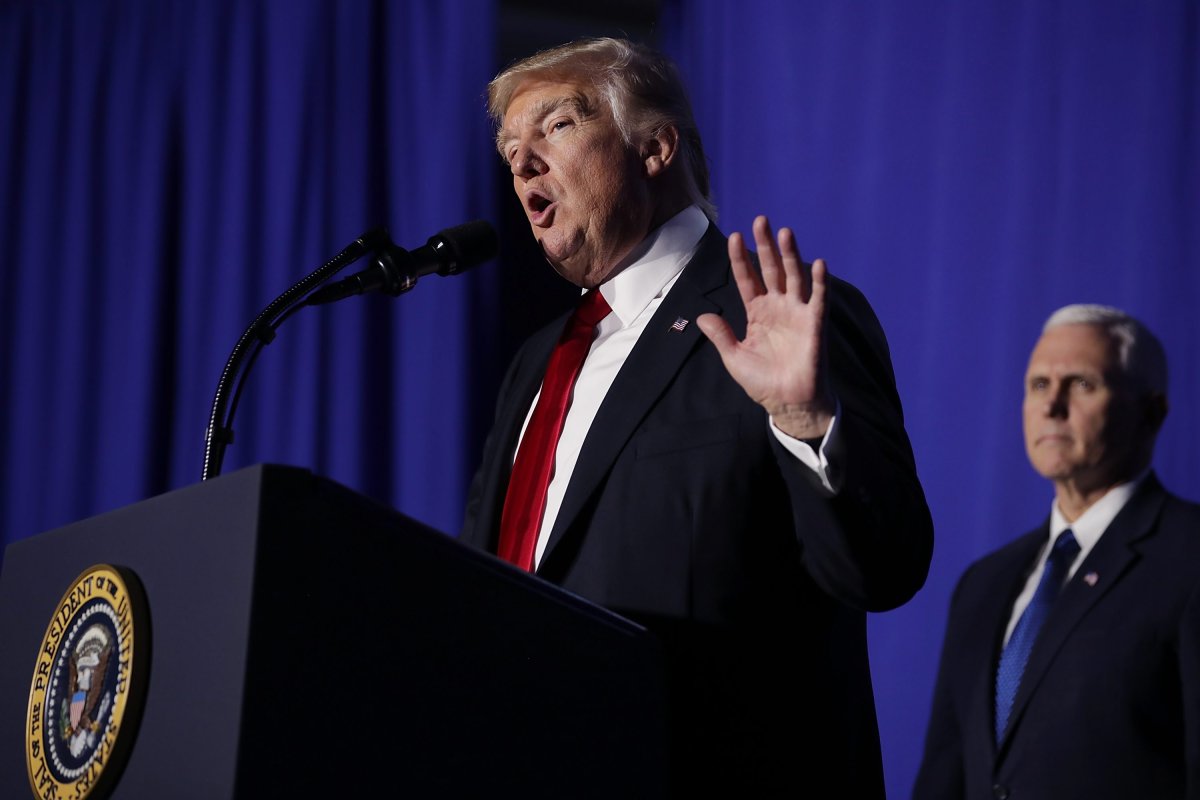The United States of America: land of the free, home of the brave.

None of whom are living in a “full democracy” anymore.
That’s according to the Economist Intelligence Unit’s (EIU) 2016 Democracy Index, which ranks the country with other “flawed democracies” such as Mexico, Tunisia and the Philippines.
READ MORE: Donald Trump believes millions of Americans voted illegally: here are the facts
The U.S. tied with Italy to rank 21st on the list, just outside the countries that are considered “full democracies” (Canada ranked with this group, tied for sixth with Ireland).
America only slid by a single ranking from 20th in the 2015 Democracy Index. But back then, it was still in full democracy territory.
The U.S. fell in the rankings because confidence in government has fallen to “historic lows,” according to Pew and Gallup surveys.
“This has had a corrosive effect on the quality of democracy in the U.S.,” the index said.
And U.S. President Donald Trump isn’t to blame for this either, the EIU added.
The decline in trust predated his victory in the U.S. election, “but he was the beneficiary of it.”

The EIU came up with scores for 165 states and two territories based on 60 indicators that were grouped into five categories: civil liberties; political participation; political culture; the functioning of government; and electoral process and pluralism.
Countries required a score of between eight and 10 to be considered “full democracies”; any country with a score between six and 7.9 was considered a “flawed democracy.”
The U.S. had an overall score of 7.98, putting it behind Japan (7.99) in its category, but just above Cabo Verde (7.94) and France (7.92).
Its score for electoral process and pluralism (9.17), which looks at whether elections are conducted freely, the U.S. was comparable to those of some full democracies, but it received lower marks on functioning of government (7.14) and political participation (7.22).
READ MORE: Donald Trump calls for major investigation into voter fraud
The EIU’s report noted that 2016 was a year of popular revolt against political elites around the world.
The election of Donald Trump was one such revolt, but the Brexit referendum was another.
Such revolts were foretold in previous political indices, but 2016’s developments “were an expression of deep popular dissatisfaction with the status quo and a hankering for change,” the EIU wrote.
- Life in the forest: How Stanley Park’s longest resident survived a changing landscape
- ‘Love at first sight’: Snow leopard at Toronto Zoo pregnant for 1st time
- Buzz kill? Gen Z less interested in coffee than older Canadians, survey shows
- Carbon rebate labelling in bank deposits fuelling confusion, minister says









Comments